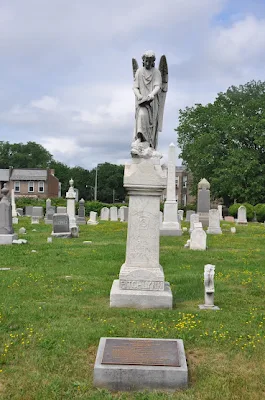by Midnight Freemasons Guest Contributor
W. B. Steve
Harrison
The
port closest to London, Clacton-on-Sea, served as a major shipping channel in
19th century England. Weather, rocks and
shifting conditions made it an especially treacherous place to navigate and, as
might be expected, the waters there claimed many ships and human lives. In 1875, Albert Edward, Prince of Wales,
Grand Master of the Grand Lodge of England and later King Edward VII (1901-10),
voyaged to India. Thankful for his safe
return eight months later at Clacton-on-Sea, the Grand Lodge of England decided
to make the port safer by donating a lifeboat in his name. With more than 4,000 spectators in
attendance, they dedicated and launched the Albert Edward Lifeboat on July 10,
1878, amidst pomp and circumstance fit for the future King. An unknown poet immortalized the event with
an official poem which said, in part:
Built
from henceforth life to save,
Manned
by crew so strong and brave-
Launch
the boat with ringing cheer!
Honour
the name to all now dear!
Honour
the dead in the living son!
Honour
the love so justly won!
“ALBERT
EDWARD," aye to be
The
sailor’s friend on this Eastern Sea!
Honour
“the Craft,” whose generous thought
So
much of sterling good has wrought!
Honour
the gift that they have given,
To
save man’s life, if willed by Heaven!
Honour
the true hearts ever found,
When
storms and tempests rage around,
To
leave their homes, where loved ones weep,
And
brave the perils of the deep!
By
the day of the dedication, the Albert Edward had already proven its worth. Delivered to Clacton prior to the official
launching, the lifeboat saw its first action on May 23, when the ship Garland,
on a voyage from Shields to London, ran aground and broke up. The crew rowed for three grueling hours to
reach the stranded vessel and saved the lives of six men and three boys on
board.
No
one will ever know how many crewmen, most of whom were likely Freemasons, lost
their lives in this dangerous service.
However, the 1884 proceedings of the United Grand Lodge of England made note
of the following:
"That
the sum of 50 guineas (about $4,800 today) be granted to the family of the late
James Cross and a similar sum to the family of Thomas Cattermole, two of the
crew of the Albert Edward lifeboat at Clacton-on-Sea, which boat was presented
to the National Life Boat Institution by Grand Lodge.
These
two men, after having assisted, the first in saving 116 and the second 33
lives, having lost their own in the discharge of their duty on the night of the
23rd January last, whilst in their boat endeavouring to rescue the crew of a
vessel in distress, leaving their families consisting of a widow and six
children and a widow and three children entirely destitute."
For
over a half century, from 1878-1929, the Albert Edward and its two successors
of the same name, guarded the port of Clacton-on-Sea and saved countless
lives. Today, Freemasons still take part
in rescues there and at other ports. In
addition the Fraternity regularly donates funds to the Royal National Lifeboat
Institution, which oversees the lifesaving operations throughout Great Britian.
~SH
W.B. Steve
Harrison is a Past Master of Liberty Lodge #31, Liberty, Missouri. He is the editor of the Missouri Freemason
Magazine, author of the book Freemasonry Crosses the Mississippi, a Fellow
of the Missouri Lodge of Research and also its Junior Warden.
Todd's Note: If you enjoyed this piece as much I did, I have good news for you! Steve is working on a book which he plans to publish next year. A version of this piece, and a few he plans to share on the Midnight Freemasons in the future may very well show up within the pages of his new book. In the meantime, you might want to check out a piece he published here A Fine Paradox: Christianity and Freemasonry and definitely check out the Missouri Lodge of Research on Facebook--many of Steve's short pieces you'll find there. ~TEC














































